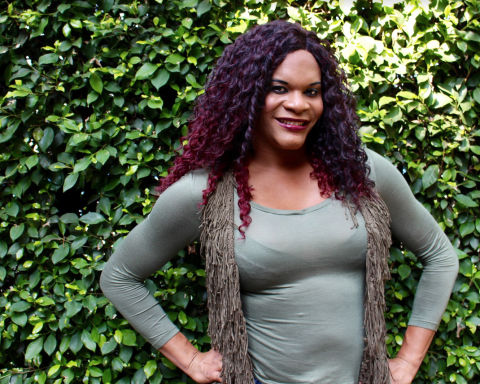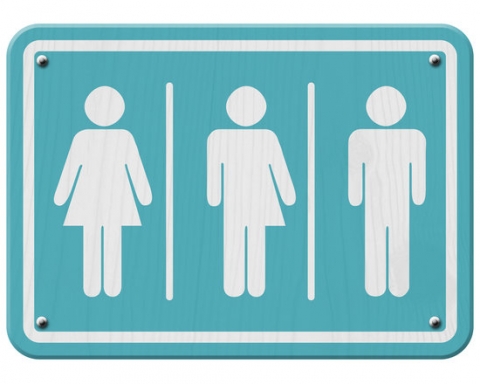Two years ago, in an essay in Bloomberg BusinessWeek, Apple CEO Tim Cook told the world he was gay. “I’m proud to be gay, and I consider being gay among the greatest gifts God has given me,” he wrote. In doing so, he became the first publicly gay CEO of a Fortune 500 company.
The essay, which came just days after Cook stood in the capitol in his home state and called out Alabama for being “too slow on equality for the LGBT community,” was no spur of the moment decision. In an exclusive interview with The Washington Post, Cook said “it had been planned for actually quite a long time,” noting he spent “probably a year” of thinking about “what to say, how to say it, where to say it, how to do that in a way that advanced what I was trying to do.”
To think through that process, he spoke with CNN anchor Anderson Cooper “multiple times,” he said, “because I thought that the way he handled his announcement was really classy. I was getting advice from people who I thought were really good people who had really deeply thought about it.”
Cooper publicly came out as gay in 2012 by responding to an email from the blogger Andrew Sullivan, whom he permitted to post the response. In it, Cooper writes about how he had wanted to keep some amount of privacy, despite working in television, and about wanting to keep the focus on other people’s stories. But as time went on, he wrote in the response Sullivan posted: “I’ve begun to consider whether the unintended outcomes of maintaining my privacy outweigh personal and professional principle. It’s become clear to me that by remaining silent on certain aspects of my personal life for so long, I have given some the mistaken impression that I am trying to hide something – something that makes me uncomfortable, ashamed or even afraid. This is distressing because it is simply not true.”
Cooper went on to say that “I’ve also been reminded recently that while as a society we are moving toward greater inclusion and equality for all people, the tide of history only advances when people make themselves fully visible,” he wrote. “There continue to be far too many incidences of bullying of young people, as well as discrimination and violence against people of all ages, based on their sexual orientation, and I believe there is value in making clear where I stand.”
There are echoes of each of those sentiments in Cook’s pronouncement two years later. Cook opened his essay by saying “throughout my professional life, I’ve tried to maintain a basic level of privacy. I come from humble roots, and I don’t seek to draw attention to myself. Apple is already one of the most closely watched companies in the world, and I like keeping the focus on our products and the incredible things our customers achieve with them.” He spoke about how, as he asks himself what he’s doing for others — quoting Martin Luther King Jr. — he realized “my desire for personal privacy has been holding me back from doing something more important.”
And he spoke about the obstacles gay people face, especially children, and the rights they’re denied. “If hearing that the CEO of Apple is gay can help someone struggling to come to terms with who he or she is, or bring comfort to anyone who feels alone, or inspire people to insist on their equality, then it’s worth the trade-off with my own privacy,” Cook wrote. Like Cooper, Cook said he’s not an activist, and both said they’d been open with people close to them.
Yet while there were some similar themes, there were differences, too. As Time’s Daniel D’Addario pointed out, the Apple CEO talked about his sexuality as something “central to his identity,” rather than as something he needed to acknowledge and simply convey his comfort with. Rather, it set him apart, giving him greater insight and greater empathy for viewing the world. “Being gay has given me a deeper understanding of what it means to be in the minority and provided a window into the challenges that people in other minority groups deal with every day,” Cook wrote. “It’s made me more empathetic, which has led to a richer life.”
Cooper is not the only outsider Cook turned to as he faced key moments or decisions over the past five years. He told The Post that as he prepared for his first hearing on Capitol Hill, which focused on Apple’s tax practices, he consulted with Goldman Sachs CEO Lloyd Blankfein and with Bill Clinton. When he was making the decision about whether to return cash to shareholders by paying dividends and buying back stock — something Steve Jobs hadn’t done — he consulted with Warren Buffett.





